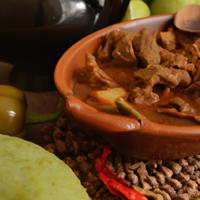
1 serving (100 grams) contains 21 calories, 0.8 grams of protein, 0.2 grams of fat, and 4.1 grams of carbohydrates.

Log this food in SnapCalorie

Nutrition Information
Calories |
50 | ||
|---|---|---|---|
% Daily Value* |
|||
| Total Fat | 0.5 g | 0% | |
| Saturated Fat | 0.1 g | 0% | |
| Polyunsaturated Fat | 0 g | ||
| Cholesterol | 0 mg | 0% | |
| Sodium | 31.0 mg | 1% | |
| Total Carbohydrates | 9.8 g | 3% | |
| Dietary Fiber | 2.9 g | 10% | |
| Sugars | 6.0 g | ||
| protein | 1.9 g | 3% | |
| Vitamin D | 0 mcg | 0% | |
| Calcium | 47.6 mg | 3% | |
| Iron | 1.0 mg | 5% | |
| Potassium | 404.8 mg | 8% | |
* Percent Daily Values are based on a 2,000 calorie diet. Your daily values may be higher or lower depending on your calorie needs.
Food Attributes
Source of Calories
About Tinda
Tinda, also known as Indian round gourd or apple gourd, is a small, green vegetable native to the Indian subcontinent and widely used in South Asian and Middle Eastern cuisines. This low-calorie vegetable is rich in dietary fiber, making it beneficial for digestion and weight management. Tinda is a good source of essential vitamins such as vitamin C and A, as well as minerals like calcium and potassium, which support bone health and regulate blood pressure. Its water content helps with hydration, while its antioxidants contribute to overall immunity. Commonly cooked in curries, stir-fries, and stews, tinda has a mild, slightly sweet flavor that absorbs spices well. While it is generally considered healthy, preparations high in oil or salt may diminish its nutritional benefits. Incorporating tinda into balanced meals offers an excellent way to enjoy its health-promoting properties.



